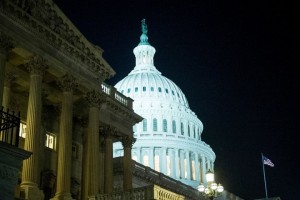How Much Are You Paying for Ukraine Aid? Economist Crunches the Numbers
4/23/24
from Daily Signal,
4/23/24:
Even as Americans grow increasingly pessimistic and agitated about their personal finances, Congress is about to ask struggling families to cover the cost of more funding for Ukraine.
The $95 billion foreign aid package adopted Saturday by the House and facing near-certain passage in the Senate includes an additional $61 billion for Ukraine. Once added to the money already appropriated for Ukraine since 2022, the United States will have spent approximately $173 billion.
That translates to more than $1,300 per American household, according to Heritage Foundation economist Richard Stern, director of the Grover M. Hermann Center for the Federal Budget.
“This will continue to drive higher inflation and interest rates and increase the cost of living for Americans,” Stern told The Daily Signal. “No matter where you live, every American family will pay the price.”
Stern explained that the funding isn’t offset with spending cuts and will instead be added to “the national credit card and by printing cash out of thin air at the Fed.” He warned that it will devalue the U.S. dollar as well as the paychecks and life savings of all Americans.
After three years of Bidenomics, Americans are feeling exasperated about the economy, pollster Scott Rasmussen discovered in an RMG Research survey conducted earlier this month.
- Only 19% of Americans surveyed say their personal finances are improving. That number has dropped five percentage points since January and is at its lowest point in 18 months.
- Nearly half, 44%, say their personal finances are getting worse.
- More than three-quarters of Americans, 76%, say their wages aren’t keeping up with inflation.
- By comparison, just 20% believe their incomes are keeping pace. That number is at its lowest level since September 2022.





